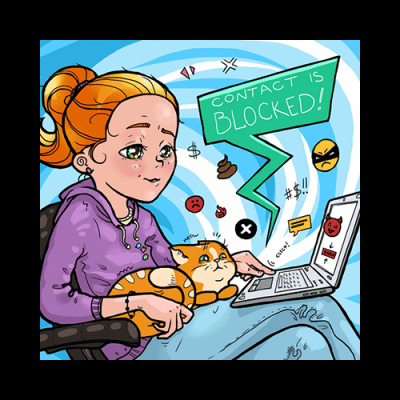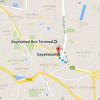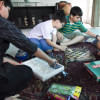49pc children encounter cyber bullying

Around half of the school-goers in the country have encountered cyberbullying, global mobile phone giant Telenor yesterday said.
The parent company of Bangladesh's top operator Grameenphone conducted a survey last year of 1,510 students aged between 12 and 18 years to understand internet use patterns and practices among youths here.
Young people are increasingly becoming vulnerable to online harassment with 49 percent of the students having fallen victim to cyberbullying in one way or the other, according to the study. As many number of students also said they had succumbed to at least one form of peer pressures like being encouraged to visit unsuitable websites or use bad language on social networks.
However, 39 percent students in Malaysia and 35 percent in Thailand admitted to having been bullied in the cyber world. Telenor's region-wide survey between June and July involved 1,896 students in Malaysia and 1,336 in Thailand.
The survey report was released yesterday marking Safer Internet Day. Grameenphone celebrated the day through an internet safety awareness session at HURDCO International School in the capital's Bashundhara Residential Area.
The inaugural study also found that school students in all the three countries tend to confide in parents and teachers when they face online issues that they do not know how to solve alone.
The students surveyed said they were either “being bullied or disturbed online” or “being bullied by the same person both online and offline” or they had actually engaged in the act of bullying others using the advantage of anonymity over the internet.
The study revealed that 70 percent in Malaysia, 67 percent in Thailand and 61 percent in Bangladesh would not send explicit messages, also known as “sexting”.
Around 60 percent of pupils in Bangladesh said they felt capable of resolving any negative experience, whether alone or by consulting parents and teachers.
Of the total number of internet users here, 80 percent are male and only 20 percent female. The male-female users ration in Malaysia is 50:50 and in Thailand 72:28.
“Since both teachers and parents play an important role in supporting students to use the internet safely, closer collaboration between schools and families can lead to a more holistic approach,” said Ola Jo Tandre, head of social responsibility of Telenor Group.
In a release, he also said that as a leader in mobile telecommunications, Telenor is dedicated to increasing internet safety for all, with a particular emphasis on youths.
Telenor expressed the hope that the findings will emphasize the importance of positive parent and teacher guidance for young students using the internet and that digital resilience can be strengthened through regular conversations and advice to children.

 For all latest news, follow The Daily Star's Google News channel.
For all latest news, follow The Daily Star's Google News channel. 








Comments